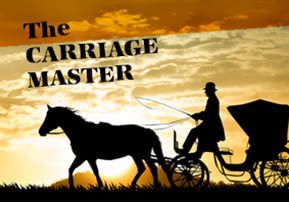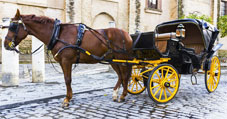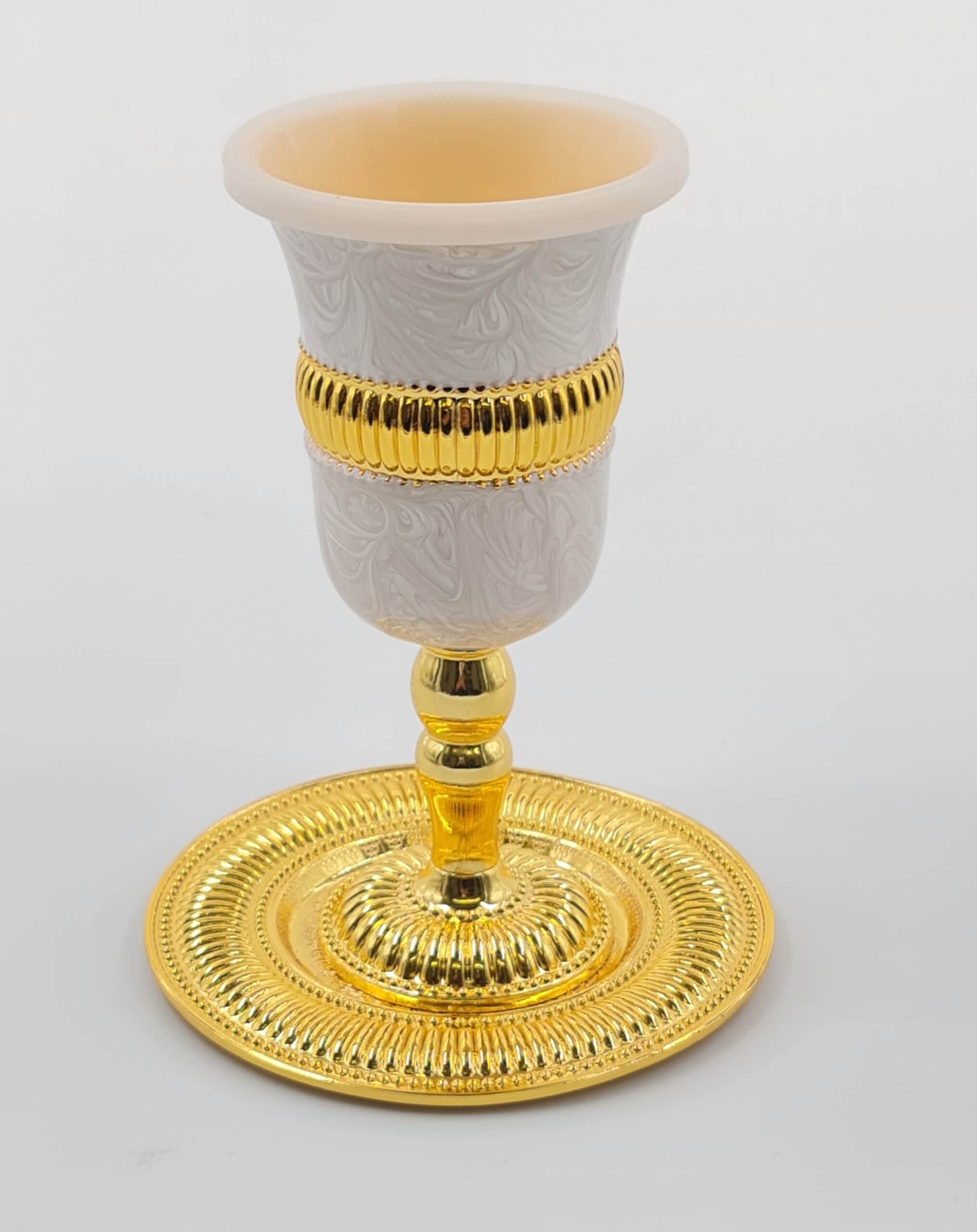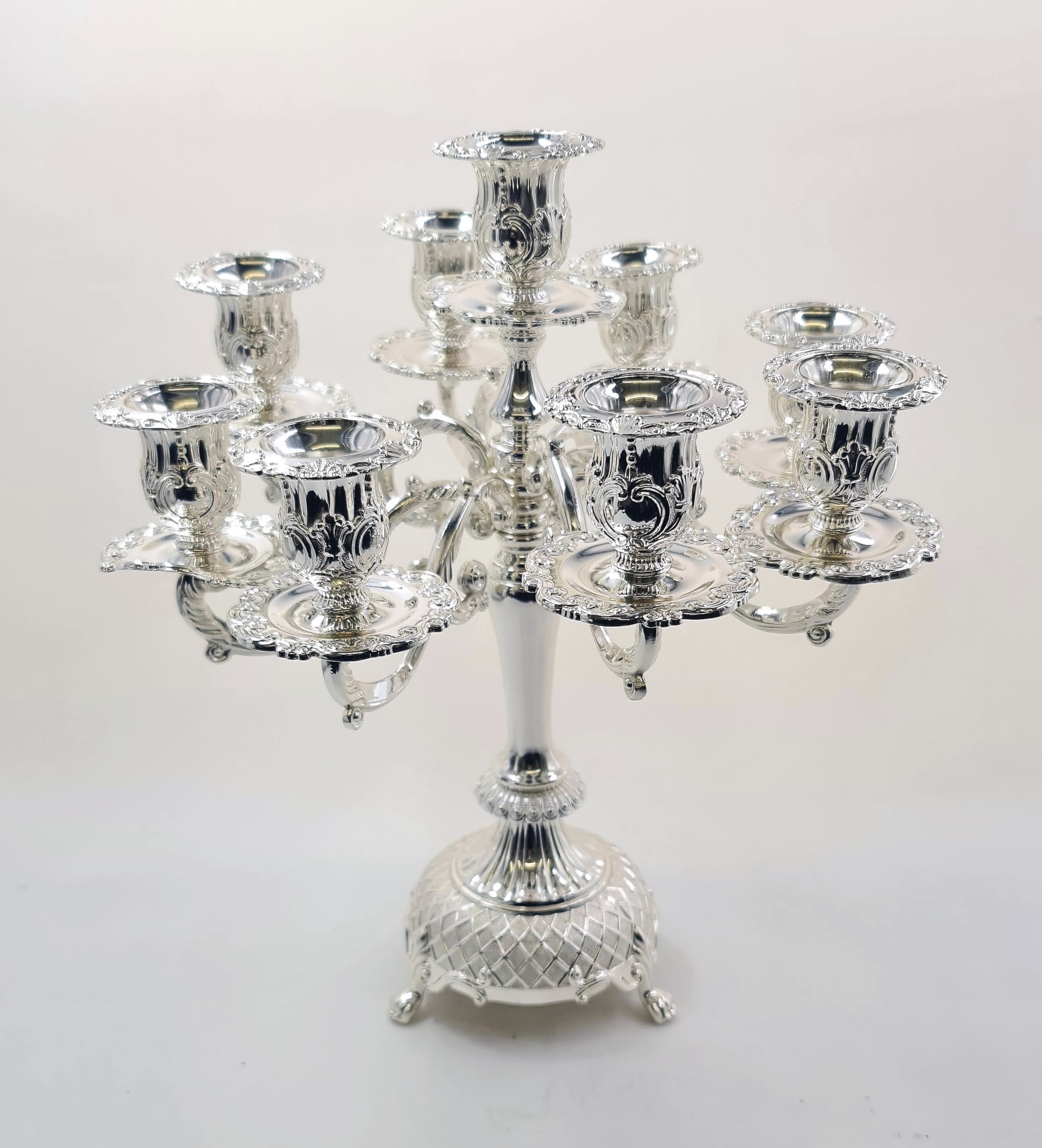
Bereishit: The Carriage Master
The way of the snake is to take the forbidden and make it look glamorous, thereby enticing people to sin; the same snake is then the prosecutor...

“…and it was a pleasure to the eyes…”(Genesis 3:6).
The wicked snake, the evil inclination, easily tricked Eve into eating the fruit from the forbidden Tree of Knowledge once she took such delight in the tree’s external appeal. We learn an important lesson for posterity here, namely, that external glitter distracts a person from intrinsic truth. Once the tree became a “pleasure” to Eve’s eyes, she forgot Hashem’s explicit command not to eat from it, despite the fact that she had dozens of other types of trees that she could eat from. This is the way of the snake, to take the forbidden and make it look glamorous, thereby enticing people to sin. The same snake, or evil inclination, that leads a person to transgress is the same accusing angel that prosecutes the transgressor in the Heavenly Court.
The following parable of the carriage master and the merchant’s son will help us understand how the evil inclination operates:
A wealthy merchant summoned his twenty tear-old son. “My son, it’s time you set out in business independently, rather than clerking for me. A self-made man feels much better than the boss’s son with the  silver spoon in his mouth. I’m giving you 120 gold rubles as a gift. I suggest that you invest in our best local merchandise – wheat and wool, for our quality and prices are better than anything in the Leipzig market. Now listen carefully – hire a dependable wagon master with a sturdy wagon and two strong mules. Take as much merchandise as you can, and with the profits, you’ll build your own thriving business.
silver spoon in his mouth. I’m giving you 120 gold rubles as a gift. I suggest that you invest in our best local merchandise – wheat and wool, for our quality and prices are better than anything in the Leipzig market. Now listen carefully – hire a dependable wagon master with a sturdy wagon and two strong mules. Take as much merchandise as you can, and with the profits, you’ll build your own thriving business.
The merchant’s son went to the town square where all the wagon masters waited to be hired each morning. Looking for the best driver, wagon and mules that would meet his needs, he felt someone tapping him on the shoulder. He turned around, and saw a fancy gentlemen dressed differently from the other wagon masters. This person looked like a royal carriage master, dressed in a fancy gold-trimmed red uniform. Not far behind him were a handsome chestnut-bay horse harnessed to an ebony-painted, brown-leather upholstered carriage fit for a king.
“I see that you’re looking for a wagon and driver, young man,” said the uniformed individual in a refined accent. “Where would you like to go?” The merchant’s son told the fancy-dressed carriage master all of his plans.
“That’s utter nonsense,” said the carriage master. “You want to haul sacks of wheat and bales of wool like a common porter? You want to ride on a dilapidated flat-board peasant wagon behind two crass mules? You’re the son of a wealthy merchant! You deserve better! Look at this carriage! This is what you deserve.”
“But what about merchandise?” asked the merchant’s son. “What can possibly be hauled in your luxurious carriage?”
“Ah, good question,” replied the slick and savvy carriage master, who then pulled a folded handkerchief out of his pocket, which when opened, revealed of handful of dazzling brilliant stones.. “To deal in diamonds, you won’t need to tote heavy sacks of wheat on your back. You won’t need to deal with coarse shepherds, either. You won’t need peasant wagons or mules. You’ll get rich fast trading in diamonds. And by the way, this is the type of vehicle that diamond traders ride in.”
The naïve merchant’s son forgot everything that his wise father had taught him. He both hired the slick-tongued carriage master and purchased the “diamonds” from him, expending a full half of the money that his father gave him.
They set out for Leipzig. The first leg of the journey was smooth as silk. The merchant’s son took delight at the way everyone gazed at him every time they’d pass through a village, wondering who that important person is in that royal carriage with the red-uniformed driver. “How lucky I am! I could have spent my life behind two mules rather than riding in velvet luxury like this,” thought the merchant’s son.
His delight didn’t last long. The carriage hit a rut in the road, and the lad’s head put a hole in the roof of the carriage, which turned out to be a cheap and thin piece of Formica. His head and neck ached and he yelled out to the carriage master, “What on earth was that?”
“There are a few potholes in the road…”
The sky became dark with clouds. Torrents of rain fell and the potholes became water-filled craters. Soaked, with a jolted spine and frayed nerves, the merchant’s son cried out in anguish. He begged the carriage master to take a different way. “No problem,” responded the carriage master, who strangely enough was still dry without a crease in his uniform. They turned to the right and encountered a clan of mean-looking bears. The horses reared, so they turned to the left. There, they encountered a band of robbers who stole the merchant son’s remaining sixty gold talons.
The carriage and its red-uniformed master disappeared. Sopped to the bone, with an aching head and tattered clothes, the merchant’s son was left alone. Fortunately, the robbers didn’t take his “diamonds”. But he now had a thirty-kilometer trek on foot to Leipzig…
Hungry, exhausted, ragged, penniless and muddy, the merchant’s son arrived at the Leipzig merchant’s fair. He asked the locals where the diamond traders can be found. Looked at this ragged vagabond strangely, thinking that he’s probably a robber of some sort, they summoned a police officer. “You’re under arrest,” the officer declared.
“What did I do wrong,” asked the alarmed merchant’s son, tired and starving. He looked at the police officer and he shuddered – it was the carriage master! “You’re not a policeman, you’re an impostor…”
“Here in Leipzig, I’m the Chief of Police, and insulting the Chief of Police is a serious offense, in addition to vagrancy and attempting to sell counterfeit diamonds; you’re going to jail!” The police officer made the merchant’s son empty his pockets, and there they were, the fake diamonds.
“B-but you sold them to me!” protested the merchant’s son.
“Another insult? Off to jail!”
* * *
Instead of listening to his wise father, the naive merchant’s son followed the glitter of the carriage master. As our sages teach, some roads – like the roads of Hashem, symbolized by the advice of the wise father – are bumpy at first but smooth for posterity. Other roads, like the road of the evil inclination – symbolized by the carriage master – are smooth at first but bumpy and tragic fpr posterity. What’s worse, the evil inclination tempts a person to sin then changes uniforms and become the prosecutor, just as the carriage master suddenly turned out to be the chief of police. Therefore, one should always look for the inner truth rather than being blinded by outer glitter and fake beauty, for this is the key to a happy life.











10/08/2014
So true!!!!!!!!!!!!!!!!!!!!!!!!!!!!!!!!!!!!!!!!!!!!!!!!!!!!!!!!!!!!